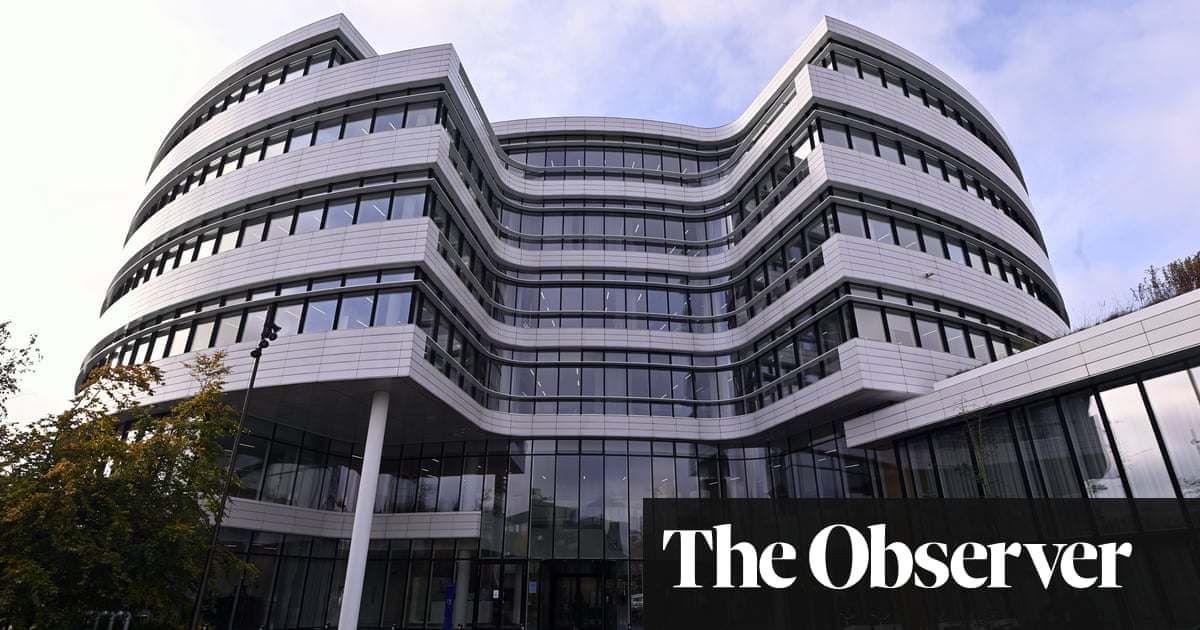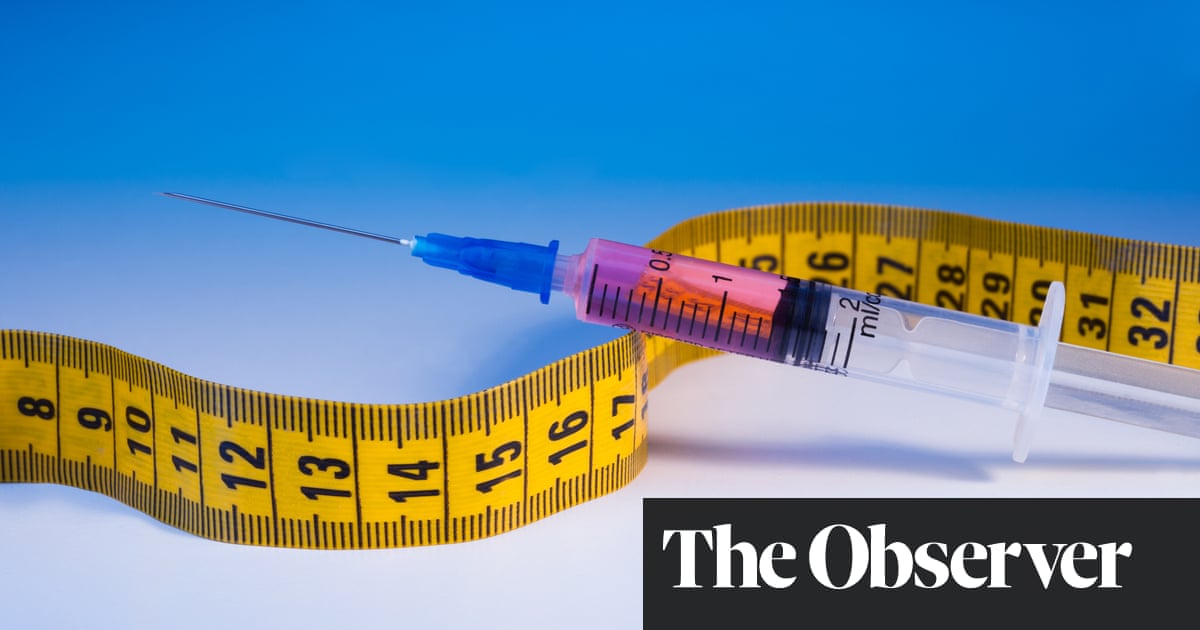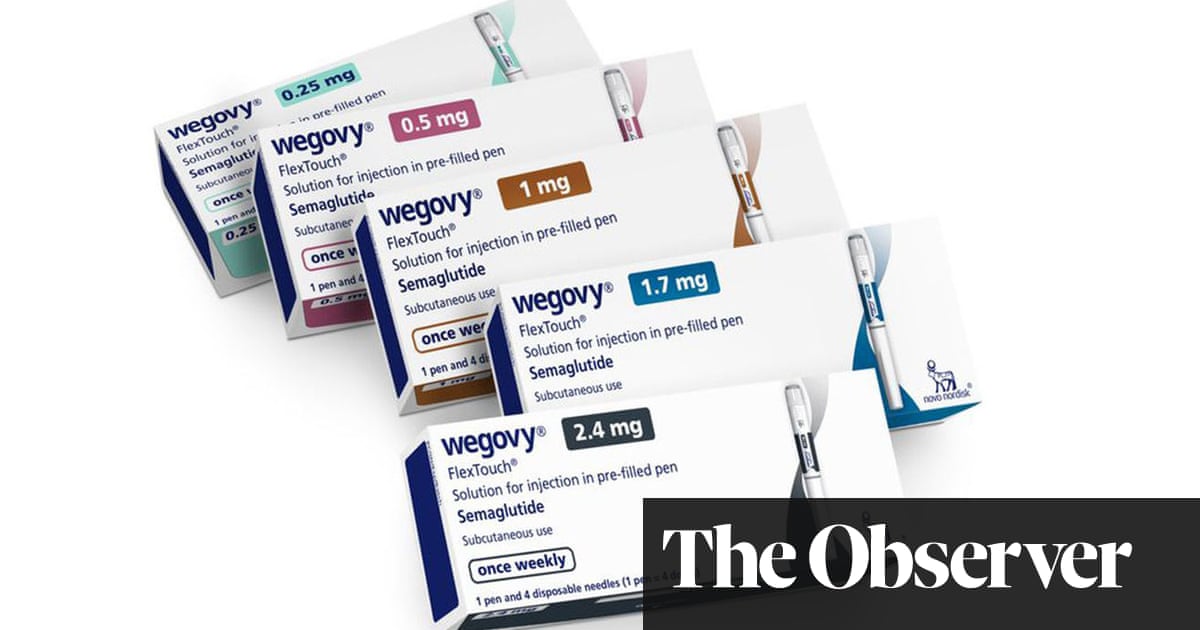
The maker of slimming jab Wegovy was facing crises on multiple fronts this weekend, with the UK medicines regulator announcing a review of its operations at the same time as an investigation is under way into the approval of its injections for NHS use.
In the last few days, Novo Nordisk has also been suspended from its pharmaceutical trade body and seen the loss of a key partnership with the Royal College of Physicians (RCP), which said on Friday that it had cut ties with the company after breaches of industry code.
The Danish manufacturer behind the weight-loss injections that have been hailed as a blockbuster new obesity treatment has recently enjoyed a wave of publicity before the arrival of Wegovy in England.
Its weekly injections contain the appetite suppressant semaglutide and are said to help patients lose up to 15% of their body weight.
But amid concern over the lasting effectiveness of the treatment, the company is facing scrutiny over its activities in the UK, including its payments to obesity experts and the “disguised promotion” of its weight-loss drugs via medical training courses.
Last week, an Observer investigation revealed that the company had paid £21.7m to health organisations and professionals in just three years as part of a campaign to boost its influence in the UK.
In some cases, those with links to Novo Nordisk went on to promote Wegovy in media interviews and in submissions to the National Institute for Health and Care Excellence (Nice), the NHS’s cost-effectiveness watchdog, without always making their connections to the company clear.
Days after the Observer’s revelations, the Association of the British Pharmaceutical Industry (ABPI), a trade association, announced that it had taken the rare step of suspending the company for two years over a separate matter.
The action on Thursday followed a 2021 complaint from a “concerned” health professional that the company had breached the ABPI’s code through its sponsorship of obesity medicine training events, which the complainant alleged included attempts to bribe participants to prescribe another of its weight-loss drugs, Saxenda.
A panel investigating the complaint concluded that the event sponsorship amounted to a “disguised promotional campaign” by Novo Nordisk and ruled that the provision of benefits for health professionals by the company, including an offer of funded paperwork support, amounted to a prohibited “inducement to prescribe, supply, administer and/or recommend” the drug. Around 4,400 UK health professionals took part in the training. On Thursday, the ABPI said that after those breaches and a further “detailed audit” of Novo Nordisk’s compliance practices, its board had “significant concern” about the company’s activities and had decided to temporarily expel it. It is only the eighth time in four decades that such a severe sanction has been applied by the trade body.
This weekend, the government’s medicines regulator said it was now assessing whether further sanctions were necessary. The Medicines and Healthcare products Regulatory Agency (MHRA) typically only intervenes in the most serious cases where the powers of the drug industry’s self-regulator are not deemed sufficient.
In the case of Novo Nordisk, the breaches were “very serious”, said Laura Squire, chief healthcare quality and access officer at the MHRA.
“Healthcare professionals should have access to appropriate information to support their prescribing choice for a particular patient. They should not be offered gifts, courses, training or opportunities to engage in any other activity that may represent an inducement to prescribe a particular medicine,” she said.
The MHRA’s review comes as Nice examines the process by which Wegovy was approved for NHS use.
Last week’s Observer investigation revealed that experts and organisations that made submissions to the watchdog while it was assessing Wegovy as a weight-loss aid had links to Novo Nordisk. One expert who gave evidence to Nice about the drug, prominent scientist Prof John Wilding, was at the time the president of the World Obesity Federation, an organisation paid more than £4.3m by Novo Nordisk in three years. His declaration of interests to Nice show these donations were not disclosed. Wilding said he “strongly refuted” the interpretation of his relationship with Novo and his role in the Nice process.
The Royal College of Physicians (RCP) also provided evidence to Nice in support of Wegovy after having received more than £100,000 in event sponsorship from Novo Nordisk in 2019-21. The sponsorship was not declared to Nice. The RCP said it should have volunteered the information but that the Novo Nordisk funding had “no bearing” on the views it offered, which were based entirely on its knowledge and expertise.
Nice said it was assessing evidence that suggests some of those who provided it with expert submissions did not follow its “robust policy” on declaring interests.
“Following concerns raised by the Observer, we are reviewing the declarations of interests from organisations and experts who provided advice to our committee that undertook the appraisal of semaglutide [Wegovy],” it said.
The suspension of Novo Nordisk is not expected to have any impact on the rollout of Wegovy, and the findings about the company’s practices relate to its promotional activities rather than the safety or effectiveness of its drug. But sources said the ABPI suspension would probably affect the company’s commercial operations. It will no longer have access to meetings or briefings of the ABPI, which is the main voice for the pharmaceutical sector in the Uk and lobbies the government on key industry issues. The company’s return to full membership will now depend on the results of further audits in late 2023 and 2024, the ABPI said.
On Friday, the RCP announced it had cut ties with Novo Nordisk in light of the company’s ABPI suspension. The college said it would return outstanding grants to the company and “put on hold projects associated with those funds”, including an obesity medicine fellowship programme funded by the drug maker.
The RCP said it had “strict criteria” for corporate partnerships. “Central to this policy is the requirement for pharmaceutical companies to be fully compliant with the ABPI Code of which Novo Nordisk now falls short,” it said.
Novo Nordisk said it was “disappointed” by its ABPI suspension but accepted the decision. “We will continue to strengthen our compliance framework in the UK and remain committed to following the ABPI code of practice and maintaining the highest possible ethical standards required by the pharmaceutical industry,” it said. The company denied the complainant’s suggestion that its efforts to promote its weight-loss drug amounted to bribery.
In relation to the Observer’s findings that it had financial links to people who went on to praise Wegovy, Novo Nordisk said it worked in a “transparent and ethical manner” and that any insinuation it had “deliberately acted outside of ethical or legal standards and proper processes” was “unfounded and misleading”.












